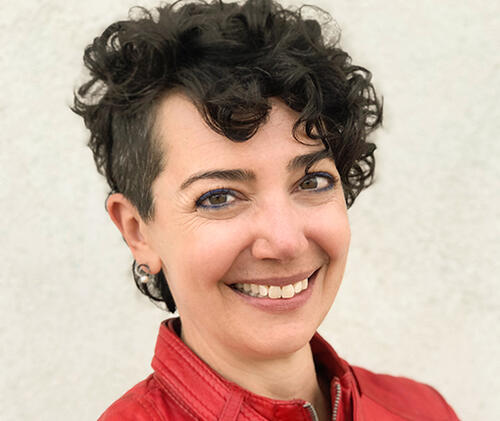Megan Comfort
Senior Fellow

PhD, Sociology, London School of Economics and Political Science
MSc, Criminology, London School of Economics and Political Science
BA, Black Studies, Wellesley College
Dr. Comfort described her first job, an impactful mentor, and a professional skill that she’s currently learning. When she’s not working on a community-centered justice project, Dr. Comfort enjoys dancing. She is the first person to hit the dancefloor as soon as the DJ fires up the music.
The first job that sparked my passion was being a service provider at a center for people visiting their loved ones at Northern California’s San Quentin State Prison. The center was located outside of the prison gates, and people would stop by before or after their visits to freshen up, have a cup of coffee, chat, and just take a break in what was usually a long day of driving, waiting in line, being under the surveillance of prison officers, and feeling anxious about a loved one. I learned so much in this job about what families and loved ones of prisoners go through in their struggles to maintain their relationships. After leaving to go to grad school, I returned to the San Quentin visiting center to conduct my dissertation field work, and the stories people shared with me and the experiences I witnessed them enduring have motivated a great deal of my research.
I was tremendously fortunate to have a caring and committed mentor, Dr. Olga Grinstead, who believed in me, opened paths for me, and equipped me to grow and thrive. We met when I was working as a service provider at a community-based organization. Early in our relationship, she gently told me she was worried that I was already headed toward burnout and encouraged me to consider a career in research as a way of focusing on the issues I deeply cared about from a structural and systemic level. I hadn’t planned on going to grad school, but I took her advice and applied. Several years into my doctoral program, we submitted a grant to the National Institutes of Health together. When it was funded, she hired me as her Project Director and five years after that she mentored me in successfully applying as a Principal Investigator for an NIH R01. Dr. Grinstead retired years ago, but to this day, I still hear her voice guiding me when I’m facing a challenge or thinking through an idea.
I recently started working with a professional coach, so I am learning a lot of new skills these days! It has been extremely helpful to have structured support in taking a long-term, strategic look at how I’m spending my time and how those activities advance my core goals. I’m drawn to continually revisiting and refining my way of doing things so I can stay dynamic and creative throughout my career.
To speak to this expert or inquire about RTI services, you can reach us at +1 919 541 6000 or use the contact form below. For media inquiries, please reach out to our Media Relations team at news@rti.org.
